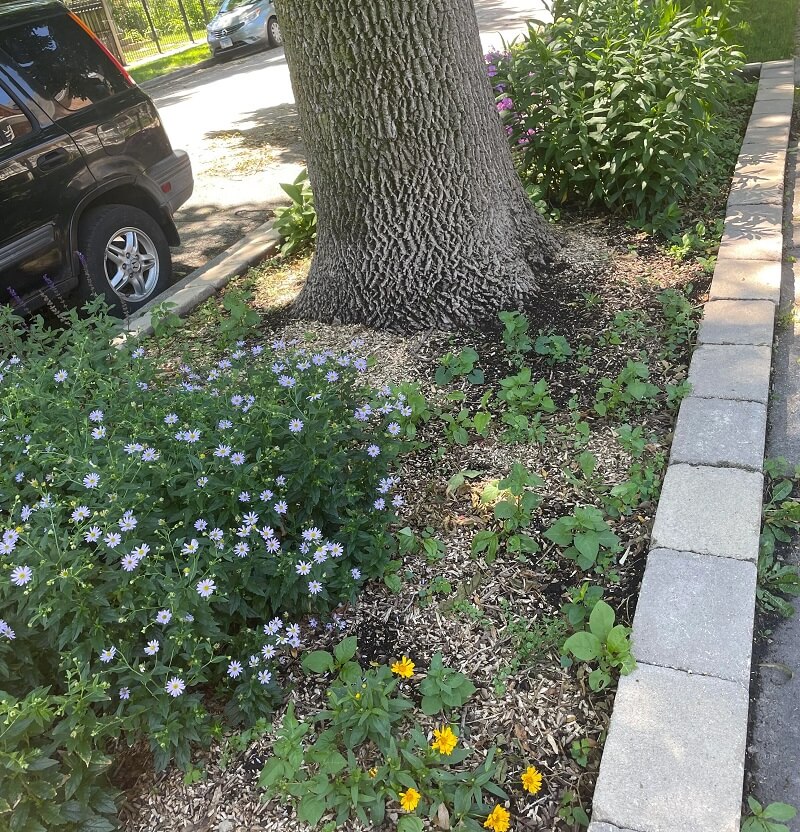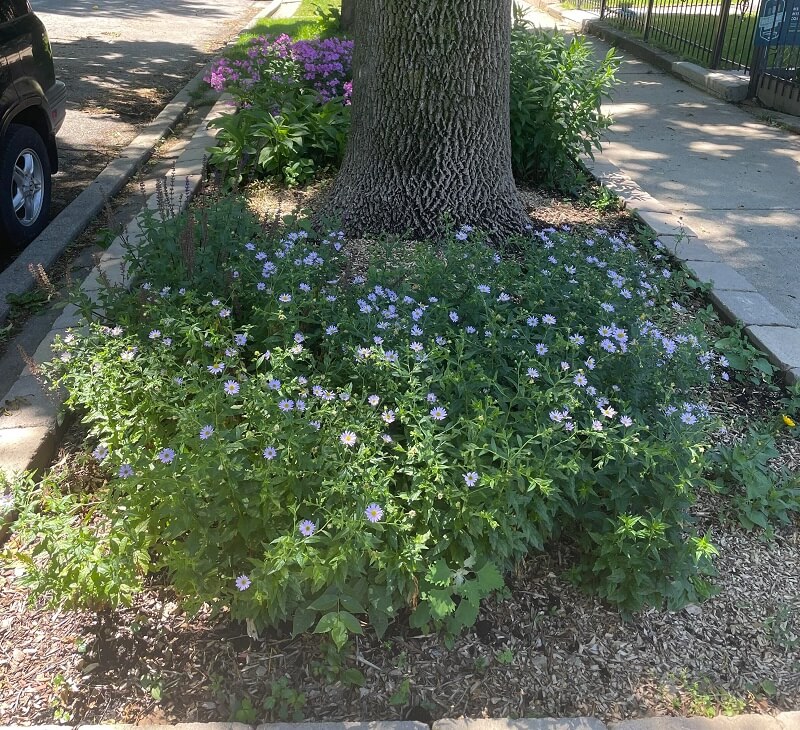A novice native gardener has taken to Reddit to solicit advice about their nascent gardening project, and the community has responded.
Gardeners across the world, in environments both urban and rural, are choosing to populate their green spaces with native flora. This practice guarantees savings on water and lawn maintenance as well as benefits for local ecosystems.
There are several active online communities of native gardeners who offer support and tips to folks who are just starting out or find themselves in unique situations.


In a recent example, a Chicago resident posted a photo of a flowering personal garden space in an urban environment on the r/NativePlantGardening subreddit.
"Any tips for my experimental flower garden? they asked. "I'm new to this and welcome any advice."
The garden space features a variety of native flowers and an ash tree as a centerpiece.
Users in the comments sounded off with support for the new gardener in the form of advice and praise.
Replacing grass lawns or otherwise barren spaces with native gardens has myriad benefits for the environment and individuals.
Switching to a clover lawn will save hundreds of dollars on water and maintenance, reducing water usage by around 150,000 gallons a year (depending on the size of the lawn in question).
Using native plants as opposed to imported ones saves even more time and money, with an estimated $2,750 to be banked over 10 years alongside 1,750,000 gallons of conserved water.
Native plants and resolute lawn options have evolved to survive in the environments they live in and won't require coddling to thrive.
In the comments, users shared advice and praise.
One individual wrote: "I'm also in Chicago area, zone 6. Try some yellow indigo!"
Another warned of a threat to the ash tree in the photo and provided resources to help. "Emerald Ash borer. It's an invasive species of beetle that is killing all of our ash trees."
The original gardener replied: "Thank you so much! I am putting in a ticket with the City of Chicago thanks to this exchange."
Join our free newsletter for easy tips to save more, waste less, and help yourself while helping the planet.









